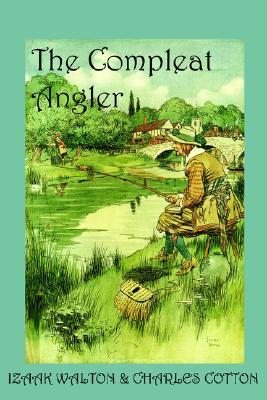Chapter I — The Compleat Angler
byChapter I – The Compleat Angler opens with a friendly agreement that sets the stage for a thoughtful journey into both companionship and the art of fishing. Piscator, a serene and skilled angler, readily accepts Venator’s proposal to join a day’s otter hunting in exchange for two peaceful days dedicated solely to angling. Their pact isn’t just about leisure—it reflects a balance of shared interest and respect for each other’s passions. With warm resolve, Piscator promises to be at Amwell Hill before sunrise. This moment, though simple, carries the charm of gentlemanly manners and the promise of mutual learning. The setting is humble, yet it holds a richness that anticipates more than just recreation. It introduces readers to a world where time is measured not by urgency, but by the slow rewards of nature and conversation.
Venator and Piscator’s agreement unfolds gently, suggesting more than just a pastime. As two men from different walks of life, they find common ground in the quiet ritual of angling. Their bond is built on curiosity and mutual admiration, which paves the way for a journey that’s equal parts sport and reflection. What begins as a casual promise soon reveals itself as a shared path toward deeper understanding. The fishing trips are less about catching and more about observing, thinking, and connecting. Piscator’s invitation to “angle and talk of fish and fishing” hints at a narrative rhythm that values experience over speed. This early exchange signals a calm, deliberate tone that defines the rest of the book. In today’s fast-paced world, this idea still resonates as a reminder to slow down and find joy in quiet rituals.
The agreement to meet at dawn reflects a devotion to nature’s timing, rather than man’s clock. Being outdoors before sunrise is more than symbolic—it reflects a mindset of respect for the natural world. Piscator’s confidence in showing up early shows not just his reliability, but also his comfort with the rhythms of the land. There is an unspoken belief that fishing isn’t only about skill—it’s about presence, patience, and being in tune with the water. Anglers don’t rush. They wait, observe, and react with care. This relationship with nature, described in such an understated way, serves as a subtle lesson in mindfulness. Even readers who have never picked up a rod can relate to the beauty of simply being present. Piscator’s promise isn’t dramatic, but it carries weight—it represents a man’s word, a love of the quiet morning, and a readiness to share all he knows.
Throughout the chapter, the tone remains calm and open, making the conversation between the two men feel personal and accessible. There’s no attempt to impress through grand speeches; instead, both characters express genuine interest in each other’s perspectives. That ease builds trust—not only between the characters, but between the author and the reader. Walton, through Piscator, offers wisdom without pride. He teaches not through lectures, but through stories, patience, and shared time. The way he talks about fishing is filled with reverence, yet he avoids making it exclusive or overly technical. Anyone can listen, anyone can learn. That inclusive spirit helps make The Compleat Angler endure, even across centuries. It welcomes the reader into a slower, more thoughtful way of life, where meaning is found in small, intentional actions.
From a practical standpoint, Piscator’s promise to spend two full days in conversation and angling reveals the time commitment serious fishing once required. Unlike modern conveniences, anglers of the past had to learn through trial, community, and deep observation. Techniques weren’t found online—they were passed down through shared days like the one being planned here. The idea of giving two entire days to fishing is a reflection of respect—for the fish, for nature, and for each other. It’s a quiet reminder that quality cannot be rushed. That lesson applies far beyond rivers and bait. Whether in relationships, work, or creative pursuits, the time we invest is what gives something its depth. In this way, Piscator and Venator’s journey becomes a timeless metaphor.
When Piscator commits to being there “God willing,” the phrase feels natural for its time, but also meaningful. It’s not used flippantly, but rather as a humble reminder that nature and fate have the final say. The phrase also shows the book’s subtle spiritual undertone, where fishing becomes a quiet form of prayer or contemplation. Time on the water is not just for catching fish, but for thinking, for noticing, and for being grateful. Piscator’s character embodies more than knowledge—he represents a kind of inner peace. He’s a man comfortable in silence, ready to teach without preaching. In today’s world, his approach feels almost radical in its simplicity. And yet, it’s exactly that simplicity that gives The Compleat Angler its enduring charm and wisdom.


